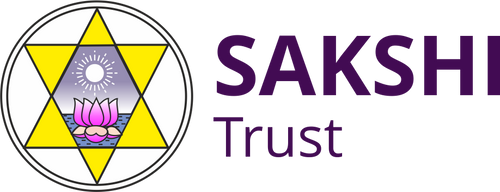- Hotŗ Priest
- Adhvaryu Priest
- Udgāta Priest
- Brahma Priest
Hotŗ Priest: Summoner
There are four orders or groups of these ritviks in the soma yāga (worship) viz., hotŗ, adhvaryu, udgāta, and brahma. Each of these groups has four ritviks and hence they all total to sixteen. As there is no use here for this detail regarding them (the officiating priests) we shall proceed to elucidate the function of the main ritviks in the inner sense by mentioning the significance of the terms applied to them.
The hotŗ group is the first of the four. The hota recites the riks. He accomplishes the summoning of the Gods by means of the riks. Hence the hota is the same as summoner, āhvāta. By uttering the riks which manifest the divine Word, he brings to proximity the presence of the Gods. The import is clear in the inner sacrifice. Such a hota (summoner) is no human priest, but the Divine (priest). The brāhmaņa books consider the divine being himself to be the real priest, purohita, placed in front. The yājňikās speak of the three worlds, Earth, Sky and Heaven, as the supporters in front, and of Agni, Vāyu and Āditya as the purohitās (priests) placed in front. So do the followers of aitareya school hold: “He who knows the three purohitās and three purodhās (those who are placed and those who place in front), that brāhmaņa is the purohita”, (aitareya brāhmaņa 8.27). The purport being that, only he, who realizes that the function of the purohita is really of the Gods, is fit to be a purohita. Incidentally this serves also just to illustrate the fact that such profound truths are scattered here and there in ritualistic texts like the brāhmaņa books; that is why Agni is lauded as ‘the divine ritvik, hota in the front’ in the first rik of the Rigveda (1.1.1) of which madhuchchhandas is the Seer. And it is this Agni who is sung hundreds of times in the Veda as the messenger of the Gods, the Immortal in the mortals.
Adhvaryu Priest: Adhvara Means Journey
The second is the adhvaryu, taking his stand on the Yajurveda. He sees to the performance of the yajňa by means of the yajus, leads the other ritviks in accordance with the manual of yajňa and it is on him, the active and chief functionary, that the entire performance of sacrifice rests. He too is God, mātarishvan-vāyu, who as the life-breath of the world makes all activities possible. The inner significance is easy to follow. It bears on the deity of all of our vital or prāņic energy, Life-God, Vāyu, the adhvaryu, who executes in the inner sacrifice all actions favourable to the activity of the Gods. Though the word adhvara has come to mean sacrifice, yajňa, yet in the veda it is described as journey or pilgrimage based on the meaning of its component parts – adhvānam rāti, gives the path. And the diligent adhvaryu is he who desires or takes to such an adhvara, journey. Among all the Gods in the form of ritviks, it is he who carries out all the actions in the journey signified by the term adhvara.
Udgāta Priest
The udgāta delights the Gods by chanting the sāman mantrās, mantrās from the Sāmaveda samhita. In the inner sense, he is God Āditya who reverberates with his chant of music, the lofty song, udgīta pleasing to all the Gods. He averts the many dangers, harms and lapses from the yajamāna, makes him self-restored and leads him on to Immortality, Truth, ānanda.
Brahma Priest
The last is brahma. He is the witness of the entire sacrificial ceremony, gives his sanction for the commencement of the ritual, gives the word of assent, OM (O yes) at the appropriate moment and place, moves not from his seat; always silent, he guards the sacrifice to its very end, against every sin of omission or commission, of deficiency or excess of mantra and action in the ritual. Such in brief is the function of the ritvik brahma. The inner sense is obvious; He is the God of the mantrās and in the Veda the mantra is known as brahma. Hence brahmaņaspati is the deity presiding over the mantra. The casual material of all metrical mantra is praņava, known by the syllable OM, the word of assent. That manifests the original Word, which is the source of all mantra. So it is brahmaņaspati the deity who presides over the mantrās of all Deities which depend upon the aforesaid praņava: It is this deity that sanctions in supreme silence the inner yajňa of the yajamāna by a single syllable, at the beginning, at the end, all throughout. This deity, known as Gaņapati in RV itself, is identified in the purāņa with the elephant-faced God, the tusk of the elephant representing the word Om. He is said to remove all the obstacles in the path.
